In-store bakeries are thriving as sales surpass pre-Covid levels but the channel, like the rest of the sector, is facing its share of challenges.
“The in-store bakery sector is in growth at +5% year on year and is now worth more than it was pre-pandemic,” explains Stéphanie Brillouet, marketing director at Délifrance.
“Bread is yet to fully recover, but sweet bakery, worth £552m, is 4.2% higher than pre-Covid and viennoiserie, worth £127m, is up 0.5% compared to pre-Covid.”
Retailers are employing different tactics to sell their wares but recruitment and inflation are among the issues influencing the way ISBs are operated and the product mix on offer.
The complexity of running “hundreds of mini manufacturing facilities” means scratch baking has been in long term decline, notes Baker & Baker European CEO John Lindsay, with many retailers using a mix of methodologies, including scratch, bake-off, thaw and serve, and ambient models.
Délifrance’s Brillouet highlights the prominence of frozen bake-off products, quoting data that shows they represent 70% of fresh bakery products bought in-store between 2019 and 2020, with this forecast to grow to 72%. Bake-off is a format utilised successfully by Lidl and recently crowned Bakery Retailer of the Year Marks & Spencer, among others.
There are benefits to this model, as Jacqui Passmore, marketing manager UK and Ireland at Dawn Foods highlights: “Par-baked, bake-off and thaw-and-serve solutions are cost efficient from a staffing point of view and ensure more consistency across the product range. Customers experience the same range and quality of products in all stores, therefore enabling retailers to have more control over their brand consistency.”
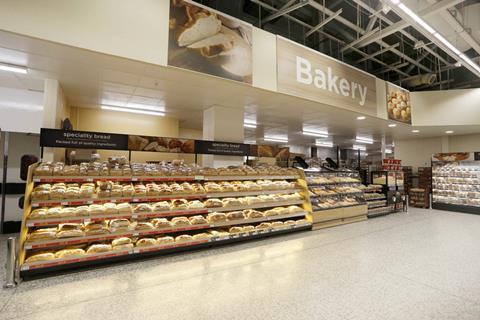
However, brand consistency isn’t the only reason for reducing scratch baking. A ‘notable shift’ in consumer buying behaviours was the reason given by Asda in 2021 as it announced plans to axe scratch baking in its ISBs and instead move to an ambient bakery model that would see a centralised bakery deliver pre-baked goods to stores each day. This, it said at the time, would allow it to broaden the range of products on offer.
The move came just two years after Tesco made similar changes as part of a major overhaul of its fresh food offering which saw scratch baking replaced or reduced in many stores in favour of an increased focus on bake-off products.
We’re seeing retailers invest in the look and design of in-store bakeries – adding visual elements of the independent café scene to draw in shoppers
“What seems critical though is that bakery skill and staff shortages are now limiting and restricting the capabilities of ISBs,” Passmore adds. “When once, scratch bakery was offering an authentic product and buying experience, we are starting to see retailers pull out of operating in this way, other than for bread, in favour of more convenient and less skills-based solutions for cakes, pastries and other sweet products.”
It’s a trend likely to continue, believes Brillouet: “As recruitment challenges continue, and ISBs introduce more indulgent and complex baked products to meet consumer trends, we’re expecting even less from scratch baking.”
A fresh new look
Regardless of how the baked goods come to be, there’s innovation aplenty in terms of the products and how they are displayed in stores.
“We’re seeing retailers invest in the look and design of in-store bakeries – adding visual elements of the independent café scene to draw in shoppers and provide a better bakery experience,” notes John Want, marketing and R&D director at Rich’s.
Want points to Tesco’s new The Bakery concept for proof. Unveiled earlier this year in six stores, the concept sees bakery products split into three distinct areas – Tea Time Treats, Everyday Favourites and Tesco Finest Signature Bakes. The in-store signage and displays have been updated alongside a re-launch of packaging designs as well as a loose fixture as Tesco looks to reduce packaging where it can. Notable features include neon lights in the shape of a tiger above a display of tiger loaves.
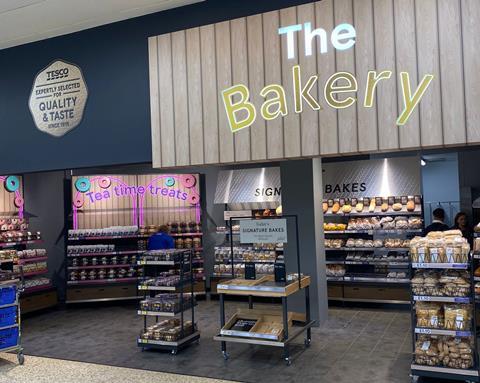
M&S has also sought to move its bakery offering front and centre as part of its renewal stores. In-store bakeries have been placed as close to the front of some stores as possible to drive perceptions of product freshness and boost sales.
More changes could be coming down the tracks now as part of the HFSS regulations is in place.
“The newly-introduced HFSS regulations have caused significant confusion and delays in the rollout of new in-store formats, and many retailers have been in a holding pattern until it became clearer on how the government decided to proceed,” notes Baker & Baker’s Lindsay, who adds that the regulations have provided an opportunity for retailers to re-organise their fixtures.
The bakery fixture needs to ensure it stands out in store and excites – and the products available can go a long way to helping this
This also presents opportunities for in-store bakeries, notes Rich’s Want. “HFSS regulations will impact where some sweet bakery items can be placed, but this means there is more opportunity for existing in-store bakeries to standout with their offering, becoming a go-to place in store that customers don’t want to miss,” he adds.
Exciting NPD
Alongside investment in fixtures, many retailers have worked hard to improve their product ranges to keep customers consistently coming back for more. This includes replicating the offerings and concepts seen in artisan bakeries and even coffee shops by experimenting with seasonal flavours and limited editions.
Core ranges have also been feeling the love. Asda, for example, has invested in re-developing its bread range with additions including the Extra Special Spelt & Rye Sourdough Boule, Extra Special Parisian Baguette and Brown Hoagie.
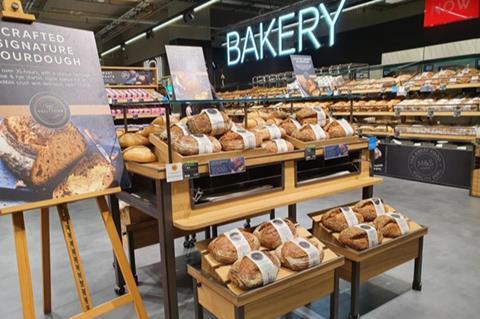
M&S, meanwhile, is focusing on sourdough thanks to a strategic partnership with Wrexham-based Jones Village Bakery which was challenged by the retailer’s former CEO Steve Rowe to make “bread that tastes like bread”. Following a £16m investment by the supplier in a new production line, the Collection signature and seeded sourdough loaves hit shelves over the summer.
“The bakery fixture needs to ensure it stands out in store and excite – and the products available can go a long way to helping this,” Want adds, explaining that ISB ranges should “deliver clear needs”.
“Successful bakery products in 2023 will either offer full, blow-out decadence or have a clear health or functional benefit. Falling somewhere in between will likely slip through the gaps so items should be clearly merchandised with POS and signage so that consumers can make an easy decision depending on their preference,” he adds.
Price will also likely be a determining factor in whether a product makes it into the trolley, but many remain optimistic about ISBs’ opportunity to shine.
“There is a strong consumer desire to seek out value, given the wider economic situation, and this should be a primary consideration for retailers,” adds Lindsay.
“In-store bakeries are likely to prove resilient into the New Year and beyond, as fresh bakery continues to be an extremely attractive and relatively affordable consumer proposition.”
ADVERTISEMENT: FOOD PAPER
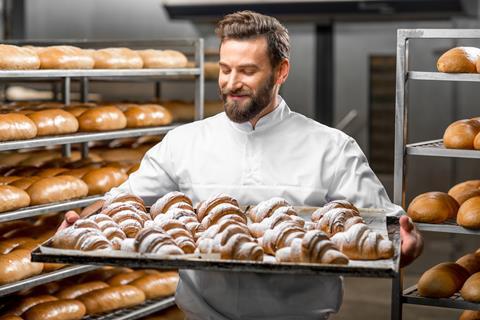
Food Paper is a UK manufacturer of baking paper based in Nottinghamshire. Established in 2017, Food Paper has the largest inventory of direct food contact papers for any application available in the UK today and is focussed on providing speciality solutions for instore bakeries.
As industry experts, with 80 years of combined experience in specifying and converting paper, Food Paper has vast knowledge resources that are used to great effect in providing cost-effective solutions for clients.
Dedicated to sustainable sourcing and supply, 100% of Food Paper’s materials are FSC accredited and all packaging is plastic free.



















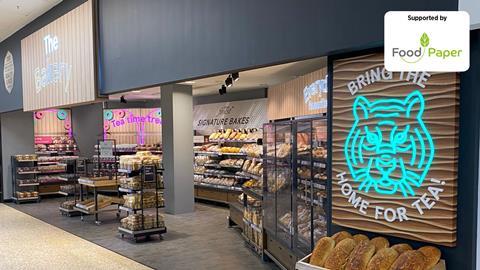
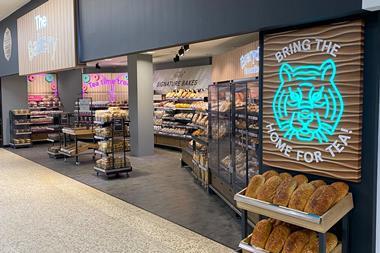
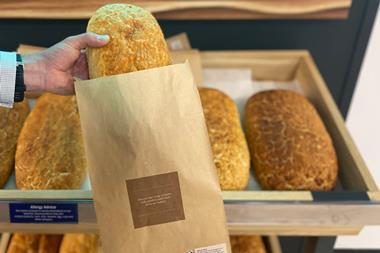

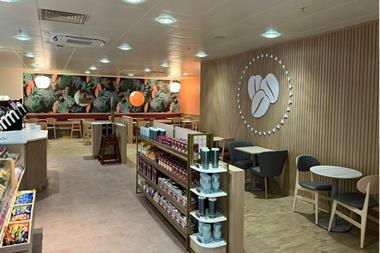
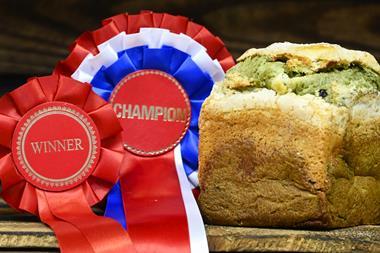
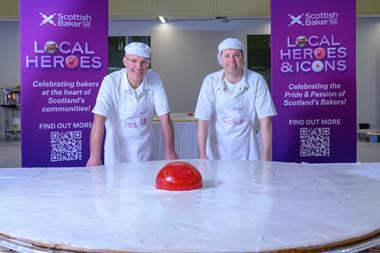



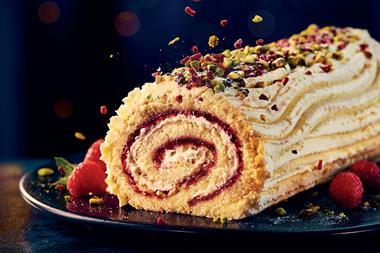
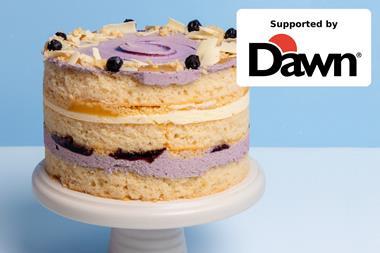
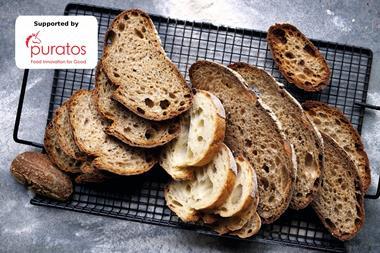

No comments yet